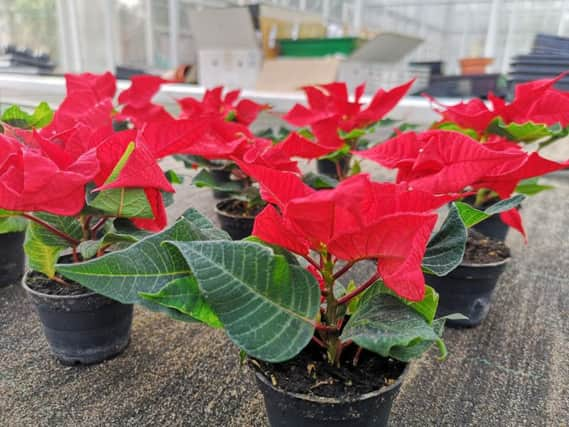Seasonal tests for Wyre crops firm


This research is focused on using its ground-breaking technology to improve the delivery of silicon to crops and, initially tested on seasonal favourites Poinsettias, and is resulting in stronger and more resilient plants being grown.
Poinsettia is a commercially significant plant species of the spurge family.
Advertisement
Hide AdAdvertisement
Hide AdThe species, indigenous to Mexico, are well known for their red and green foliage and is widely used during the festive period.
Anna Weston, co-managing director, Levity CropScience, said: “We have developed a new technology that improves silicon uptake and mobility in crops and is important since silicon can help make the branches stronger.
“Our research is already showing we can significantly improve flowering and the size of the bracts (the red leaves that look like flowers), and help the plants cope better with stress, meaning fewer plants becoming waste, due to broken bracts.”
The new product will be released in 2019.